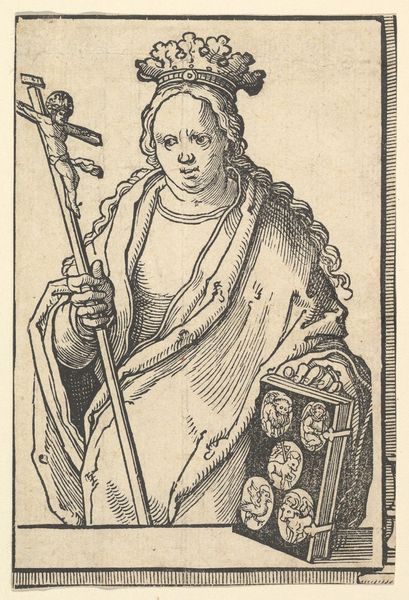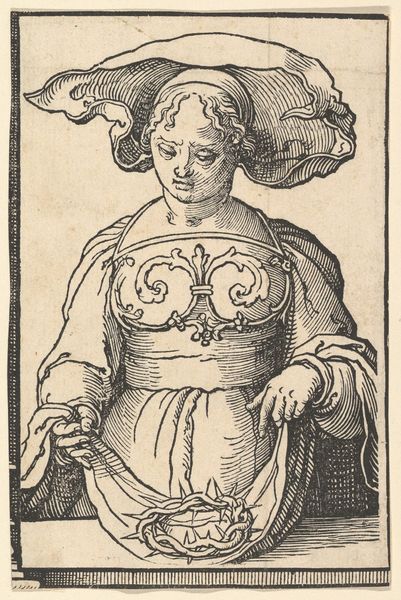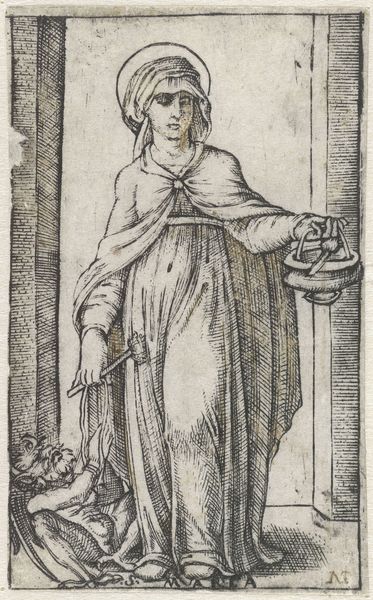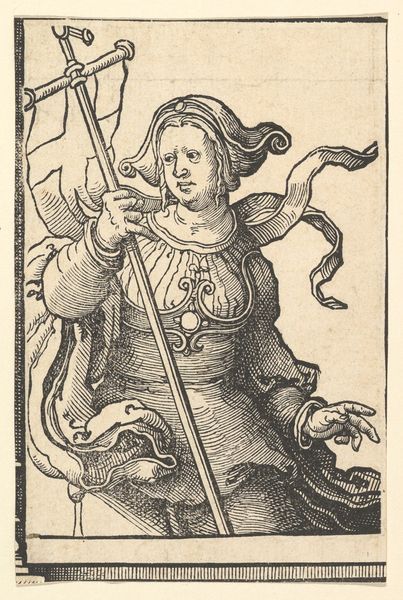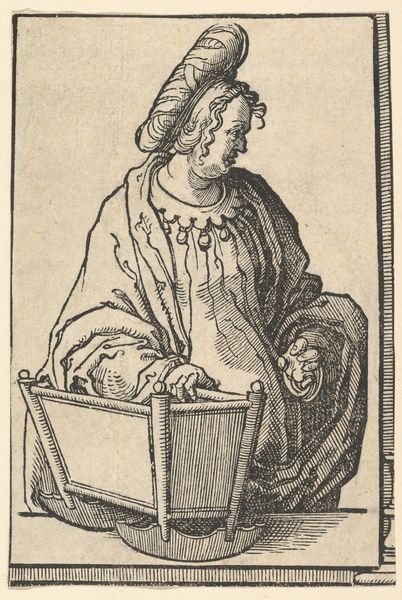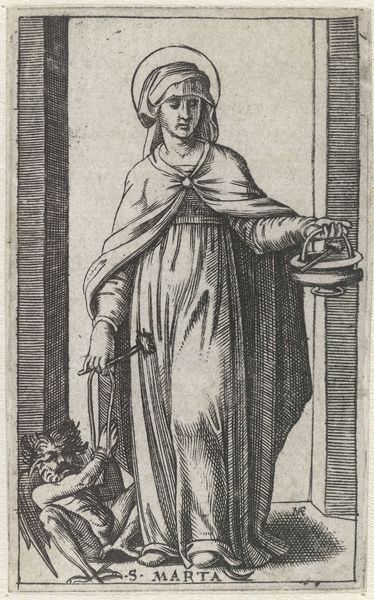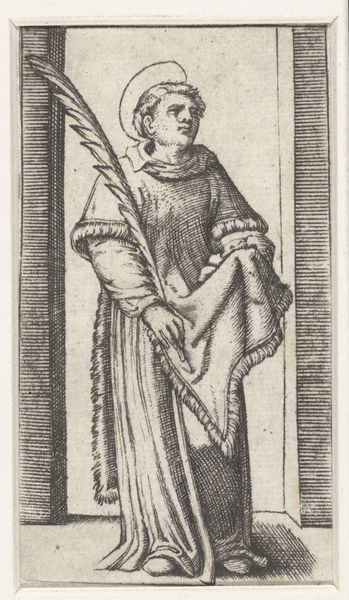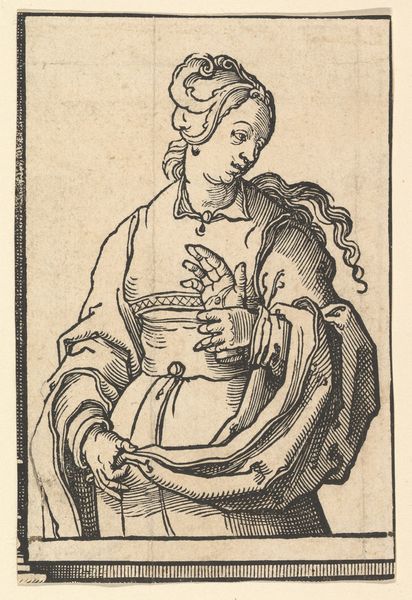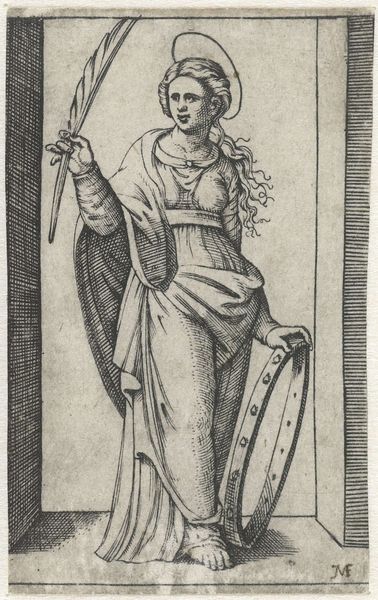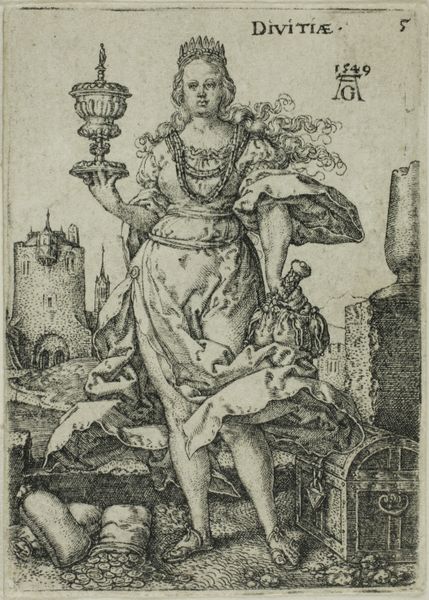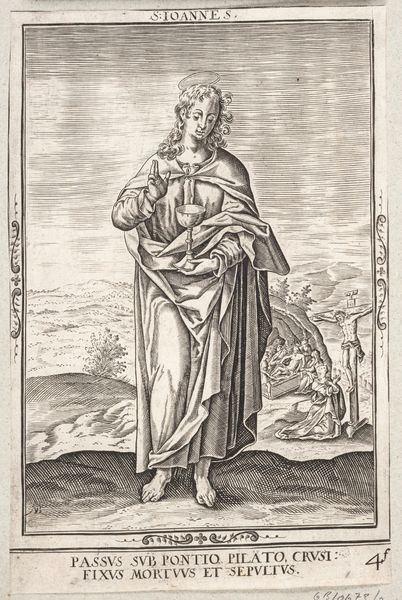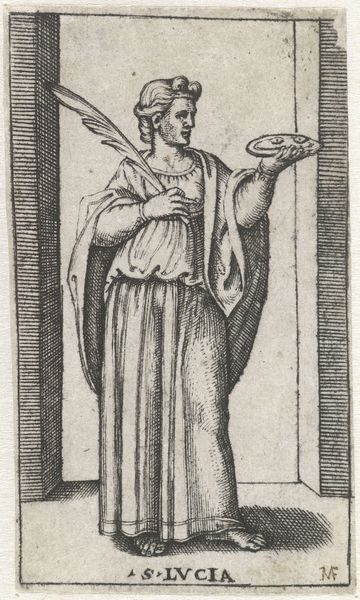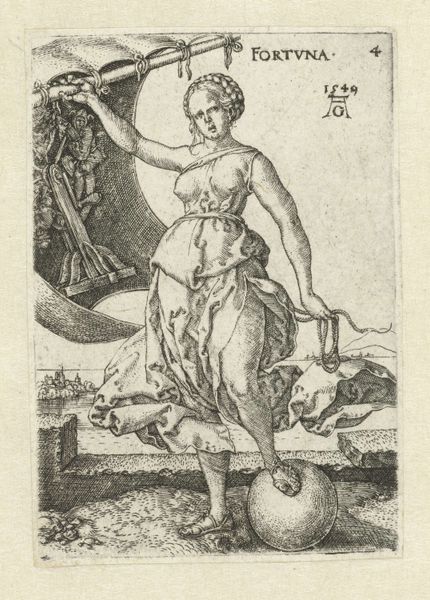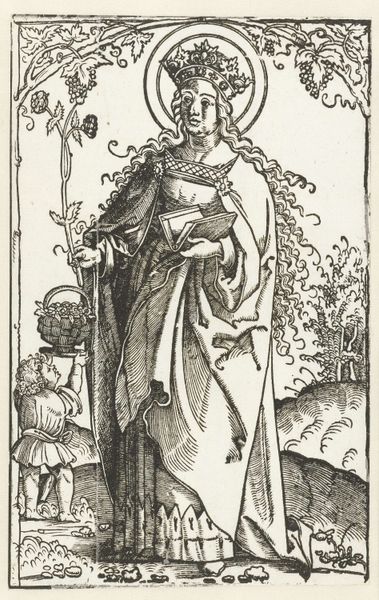
Erythrean Sibyl, from the series of Sibyls 1525 - 1535
0:00
0:00
drawing, print, woodcut
#
portrait
#
drawing
# print
#
woodcut
#
northern-renaissance
Copyright: Public Domain
Lucas van Leyden created this engraving of the Erythrean Sibyl sometime between 1515 and 1530. Van Leyden was part of a broader European movement that sought to integrate classical antiquity with Christian tradition. The Sibyls were pagan prophets, and they came to be seen as counterparts to the Old Testament prophets. Here, we see the Erythrean Sibyl, identified by the flower she holds and the objects around her. Notice how van Leyden used line and texture to create depth and interest, and think about the meanings that would have been attached to these symbols. This print would have been one of many circulating in the Netherlands at this time. Consider how its meaning would have changed as it traveled and was interpreted in different contexts. The historian might look at period accounts of religion, politics, and art to better understand the work’s meaning. Art always speaks within a specific context, and its significance changes over time.
Comments
No comments
Be the first to comment and join the conversation on the ultimate creative platform.
